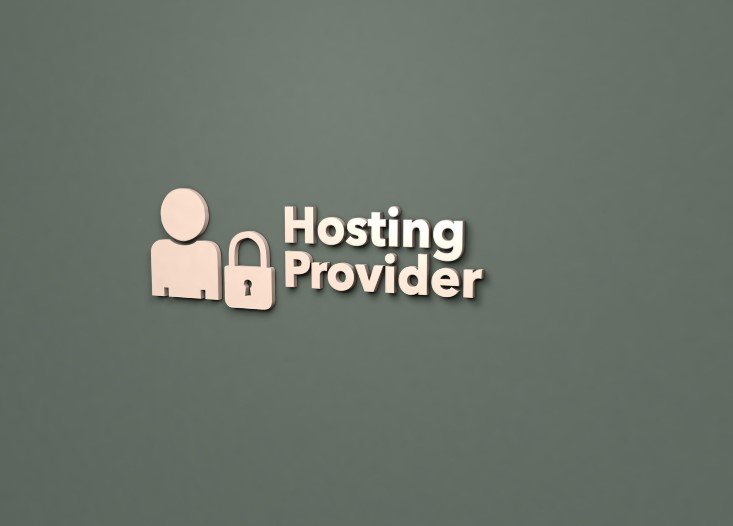Last Updated on November 13, 2025
For any company in the digital age, a website is more than just an online presence—it is the virtual storefront where potential customers form their first impressions. For small businesses especially, having a professional, reliable, and fast-loading website can mean the difference between gaining new customers or losing them to competitors. Behind every great website lies one crucial foundation: web hosting.
Selecting the best hosting provider for small business is not simply about choosing the lowest-priced option. It is about finding a service that ensures consistent uptime, fast performance, robust security, and scalability to grow alongside your company. A poorly chosen host can lead to frequent downtime, slow-loading pages, and vulnerabilities that damage customer trust. On the other hand, a carefully chosen provider helps strengthen brand credibility, boosts SEO rankings, and creates a seamless customer experience.
Small business owners often face tighter budgets and limited technical knowledge, making the choice of hosting even more critical. A reliable hosting partner removes much of the stress by providing easy-to-use tools, helpful support, and features that keep your business online 24/7.
This guide will walk you through the key factors to consider, the types of hosting available, and a detailed look at the best hosting provider for small business in 2025. By the end, you will be better equipped to select a hosting service that aligns with your business goals and budget.
Key Factors to Consider When Choosing a Hosting Provider
Choosing the best hosting provider for small business is not just about affordability. The right hosting can directly impact your website’s visibility, customer trust, and long-term growth. Below are the most critical factors you should evaluate before making a decision:
1. Uptime and Reliability
A website that frequently goes offline means missed sales opportunities and a negative impression on visitors. Look for providers that guarantee at least 99.9% uptime. Reliable uptime ensures that your customers can always access your website when they need it.
2. Speed and Performance
Website speed plays a crucial role in both user experience and SEO rankings. Studies show that users leave a site if it takes more than three seconds to load. Hosting providers that use SSD storage, caching systems, and global CDN integration will help your website perform faster and rank better.
3. Security Features
Small businesses are not immune to cyber threats. A strong hosting provider should offer:
- Free SSL certificates for data protection
- Malware scanning and firewalls
- Automated daily or weekly backups
- DDoS protection
These features help protect sensitive business and customer information.
4. Customer Support
Not every small business has an in-house IT team. That’s why 24/7 customer support through live chat, phone, or ticket systems is essential. Providers like SiteGround and Bluehost are recognized for excellent support that helps you resolve issues quickly.
5. Scalability and Growth Potential
Your business may start small, but with growth comes higher website traffic. A scalable hosting provider allows you to easily upgrade from shared hosting to VPS, cloud, or managed hosting as your needs expand—without costly downtime or complex migrations.
6. Ease of Use
Most small business owners are not tech experts. User-friendly dashboards like cPanel, Plesk, or managed WordPress panels simplify hosting management. One-click installs for popular CMS platforms (like WordPress, Joomla, or Drupal) make launching and managing websites easier.
Types of Hosting for Small Businesses
Before you decide on the best hosting provider for small business, it’s important to understand the different hosting types available. Each option has unique strengths and weaknesses, and the right choice depends on your budget, website goals, and technical requirements.
1. Shared Hosting
This is the most common and budget-friendly option. In shared hosting, multiple websites are hosted on the same server, sharing resources like bandwidth and storage.
- Pros: Very affordable, beginner-friendly, easy setup.
- Cons: Limited performance, slower speeds during high traffic, less security.
- Best For: Startups, blogs, and very small websites with low traffic.
2. VPS (Virtual Private Server) Hosting
VPS hosting gives you dedicated resources on a shared server by dividing it into virtual sections. It’s a step up from shared hosting in terms of power and control.
- Pros: More reliable performance, scalable, customizable environment.
- Cons: Higher cost than shared hosting, some technical knowledge may be required.
- Best For: Small businesses expecting moderate growth and higher traffic.
3. Managed WordPress Hosting
For businesses using WordPress, managed hosting is a premium option. The provider takes care of updates, security, backups, and optimization.
- Pros: Hassle-free management, top-notch security, optimized for WordPress performance.
- Cons: More expensive than standard hosting.
- Best For: Small businesses relying heavily on WordPress for blogs, eCommerce, or service websites.
4. Cloud Hosting
Cloud hosting distributes your website across multiple servers, ensuring high availability and flexibility. If one server fails, another takes over seamlessly.
- Pros: Scalable resources, excellent uptime, pay-as-you-go pricing.
- Cons: Pricing can increase as traffic grows, sometimes more complex to manage.
- Best For: Growing businesses, eCommerce stores, and websites with unpredictable traffic.
5. Dedicated Hosting
With dedicated hosting, your business gets a whole server exclusively. This provides maximum control and performance.
- Pros: High performance, full customization, enhanced security.
- Cons: Very expensive, requires technical expertise to manage.
- Best For: Large enterprises or businesses with very high traffic.
Top Hosting Providers for Small Businesses in 2025
Now that you understand the essentials of hosting, let’s explore the leading providers. Each of these companies has unique strengths, so the best hosting provider for small business depends on your budget, goals, and technical needs.
1. Bluehost – Best for Beginners
- Overview: Bluehost is officially recommended by WordPress and is one of the most popular hosting companies worldwide.
- Pros: Free domain for one year, free SSL, 24/7 customer support, user-friendly dashboard.
- Cons: Renewal prices are higher after the first term.
- Best For: Startups and entrepreneurs launching their first website who want simple setup and reliability.
2. HostGator – Flexible and Affordable
- Overview: Known for flexible plans, HostGator provides plenty of room for businesses to grow.
- Pros: Unlimited bandwidth and storage, good uptime record, scalable plans.
- Cons: Interface may feel cluttered to beginners.
- Best For: Small businesses with tight budgets that plan to expand in the future.
3. SiteGround – Excellent Customer Support
- Overview: SiteGround stands out with its world-class customer support and security tools.
- Pros: Free daily backups, advanced security, fast servers, Google Cloud infrastructure.
- Cons: Storage is limited compared to competitors.
- Best For: Service-oriented small businesses that rely heavily on support and uptime.
4. A2 Hosting – Speed and Performance
- Overview: A2 Hosting is built for speed, offering turbo servers that make sites load up to 20x faster.
- Pros: Optimized servers, free site migration, developer-friendly tools.
- Cons: High-speed plans cost more.
- Best For: Businesses where speed and SEO performance are top priorities.
5. InMotion Hosting – Business-Focused Features
- Overview: InMotion offers reliable services tailored for business owners.
- Pros: Free professional email, solid performance, large storage options.
- Cons: Data centers are located only in the U.S.
- Best For: U.S.-based small businesses needing stable hosting with extra business features.
6. WP Engine – Premium Managed WordPress Hosting
- Overview: WP Engine is a leader in managed WordPress hosting, perfect for companies that rely heavily on WordPress.
- Pros: Automatic updates, daily backups, excellent performance and security.
- Cons: More expensive than most shared hosting services.
- Best For: Small businesses running professional WordPress sites or eCommerce shops that need hands-off management.
7. Cloudways – Scalable Cloud Hosting
- Overview: Cloudways offers cloud hosting with pay-as-you-go pricing and multiple provider options such as AWS, Google Cloud, and DigitalOcean.
- Pros: High scalability, flexible pricing, choice of top cloud infrastructure.
- Cons: Slightly steeper learning curve for non-technical users.
- Best For: Growing businesses and startups expecting rapid or fluctuating traffic.
Comparison and Decision-Making
Choosing the best hosting provider for small business often comes down to balancing price, features, and growth potential. To make the decision easier, here’s a quick side-by-side comparison of the leading providers we covered:
| Hosting Provider | Best Feature | Price Range (Approx.) | Ideal For |
|---|---|---|---|
| Bluehost | Beginner-friendly setup, WordPress integration | $2.95 – $13.95/mo | Startups & first-time website owners |
| HostGator | Flexible plans with unlimited storage/bandwidth | $3.50 – $11.95/mo | Budget-focused small businesses planning gradual growth |
| SiteGround | Outstanding support & Google Cloud infrastructure | $3.99 – $14.99/mo | Businesses needing reliability & strong customer service |
| A2 Hosting | Turbo servers for high speed & SEO performance | $2.99 – $14.99/mo | Businesses prioritizing fast performance |
| InMotion Hosting | Business tools (emails, large storage) | $3.49 – $14.99/mo | U.S.-based small businesses |
| WP Engine | Premium managed WordPress hosting | $20 – $50/mo | WordPress-heavy businesses & online shops |
| Cloudways | Scalable cloud hosting with top providers | $10 – $36/mo | Startups & companies expecting rapid growth |
Decision-Making Tips
- Identify Your Current Needs
If you’re launching your first website or running a blog, Bluehost or HostGator provide affordable, easy-to-use solutions. - Consider Long-Term Growth
If you expect your business to expand quickly, go for a scalable solution like Cloudways or VPS plans from A2 Hosting. - Match Hosting to Platform
Running a WordPress website? WP Engine or SiteGround may be worth the higher cost for peace of mind and better performance. - Prioritize Speed & SEO
If SEO and user experience are top priorities, A2 Hosting’s performance-oriented servers are a strong choice. - Look at Support Quality
If you lack technical expertise, SiteGround’s and Bluehost’s customer service can save you time and stress.
Conclusion
Your website’s success is heavily influenced by the hosting provider you choose. The best hosting provider for small business is one that ensures high uptime, strong security, reliable support, and the ability to scale as your business grows.
For beginners, Bluehost or HostGator offer budget-friendly and simple solutions. If customer service and reliability are your top priorities, SiteGround is a standout option. Businesses that prioritize speed can consider A2 Hosting, while those needing premium WordPress management should look at WP Engine. For startups planning rapid growth, Cloudways offers flexible cloud solutions.
Ultimately, hosting is not just an expense—it is an investment in your online presence. Choosing the right provider ensures your small business website is fast, secure, and always available to your customers, giving you the foundation to grow confidently in 2025 and beyond.
FAQs
Q1: What is the cheapest hosting option for small businesses?
The cheapest options are usually shared hosting plans from Bluehost and HostGator, starting around $3 per month.
Q2: Which hosting is best for eCommerce websites?
For smaller eCommerce stores, SiteGround and InMotion Hosting are solid choices. For larger online shops expecting growth, Cloudways or WP Engine are better options.
Q3: Can I migrate my site if I choose the wrong hosting provider?
Yes, most top providers offer free or low-cost migration tools to move your website without significant downtime.
Q4: Do I need managed hosting for my small business?
Managed hosting is not mandatory but is recommended for businesses that don’t want to deal with technical maintenance like security, updates, or backups.
Q5: How does hosting affect my Google ranking?
Google considers site speed, uptime, and security when ranking websites. A poor hosting provider can hurt your SEO, while a strong one improves your visibility.
Q6: Which hosting provider offers the best balance of price and performance?
Bluehost and SiteGround are often recommended for their balance of affordability, reliability, and performance.



